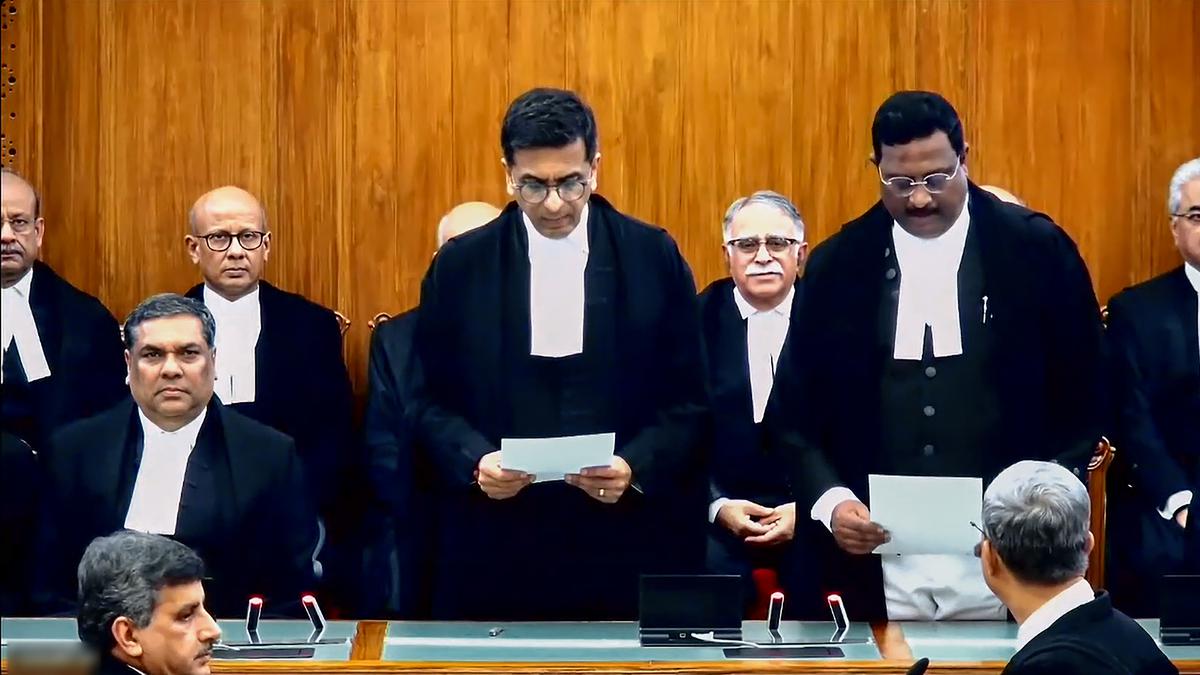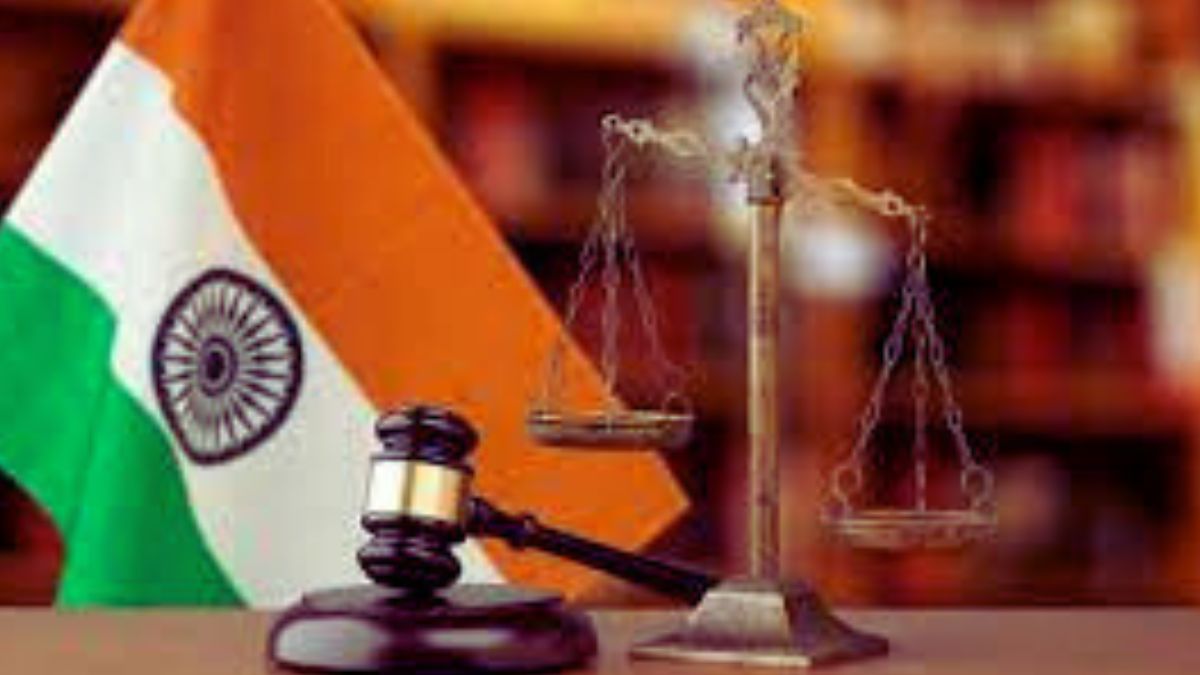For the first time in independent India, a serious public debate is unfolding about the functioning of the judiciary. The judiciary has always been spoken of in hushed tones—criticized occasionally in academic seminars or bar associations—but rarely has it entered the mainstream of national discourse with such intensity. That this debate has gained momentum now, when India is scripting a new chapter as the world’s fastest-growing economy, makes it all the more significant.
India’s economic rise is not anecdotal—it is measurable. In the first quarter alone, GST collections recorded a robust 7.8% growth. Compare this with the global scene: the United States, fresh from the return of Donald Trump to the White House with a handsome majority, is battling internal economic headwinds. Trump, true to his “Make America Great Again” slogan, has swung into action with heavy tariffs on several nations, including India, China, and Russia, besides Brazil. His new brand of global diplomacy is not about regional stability or human rights—it is about trade. Call it “trade diplomacy,” where economic chokeholds are the weapons of choice.
This shifting global order is not without its anxieties. The US, for one, fears that unless India’s growth is somehow slowed down, its own relative decline will be starker. After all, while the American and Chinese economies are struggling to recover from the devastation of the pandemic, India not only weathered the storm but emerged as a global lifesaver. Despite a population of 1.4 billion, India produced four indigenously developed COVID-19 vaccines and supplied them to 84 countries, often free of cost. A gesture of solidarity from India, while American pharma giants saw the pandemic as a profit-making bonanza.

It is in this context that voices within India, especially from the corridors of government, are raising uncomfortable but genuine questions. One such voice is Sanjeev Sanyal, a member of the Economic Advisory Council to Prime Minister Narendra Modi. Known for his candor, Sanyal recently addressed judicial officers and urged them to introspect. His words were blunt: unless the judiciary reforms itself, it risks becoming a stumbling block to India’s economic growth trajectory, from realising average India’s dream of becoming ‘Vikasit Bharat’ when it celebrates 100 years of independence in 2047.
He made a pointed observation: why should an independent India continue with colonial-era practices such as long, unwarranted vacations?
In a country where nearly 5 crore cases are pending, the spectacle of courts shutting down for weeks at a time is more than just an inconvenience—it is a denial of justice.

Here is where the Constitution itself offers both guidance and warning.
• Article 32 gives every citizen the right to move the Supreme Court for the enforcement of fundamental rights. But what use is this “heart and soul of the Constitution,” as B.R. Ambedkar called it, if petitions languish for years?
• Article 136 vests the Supreme Court with special leave to hear any case from any court or tribunal in the country. This extraordinary appellate power, while meant as a safety valve, has become a funnel for endless litigation.
• Articles 141 and 142 empower the Supreme Court to lay down binding law and even do “complete justice” in any matter. Yet, when justice is delayed by years or decades, the very spirit of these provisions stands compromised.

This is why Sanyal’s call for introspection matters. Judicial authority flows from the Constitution, but constitutional authority is meaningless without timely delivery. Justice delayed is, indeed, justice denied.
Vacations are not the only problem. Many a time, government pleaders themselves contribute to the backlog by routinely seeking adjournments, failing to file counters on time, or pushing cases up the ladder from single bench to division bench, and further clogging the system. The result is agony for ordinary petitioners, who spend years chasing justice.
The larger complaint often levelled at the judiciary is that it strays into the domain of the legislature—what critics call “judge-made law.” Judges, of course, see themselves as interpreters of the Constitution, but when interpretation starts to look like legislation, friction with the executive is inevitable.
There is also the issue of legal preparedness. If every new law or policy is to face judicial scrutiny—and rightly so—it is the duty of the Solicitor General, Advocate Generals, and law officers to defend it robustly. That requires the government to appoint the best legal brains, not merely reward loyalists or favor those with political proximity.

Enacted as the Arbitration & Conciliation Act 1996, the law governing ADR has been amended multiple times. Yet the track record remains uninspiring. Cases that could have been resolved through arbitration or mediation continue to flood the courts. In the drafting of the new Nyaya Samhita, the government seems to have missed the chance to make ADR mandatory for disputes that clearly fall within its scope.
Justice delivery at the grassroots is another long-promised reform that remains elusive. For years, we have heard about Gram Nyayalayas—village-level courts meant to decentralize justice. Yet the wait continues, leaving the rural poor dependent on distant and overburdened district courts.
To be fair, judges do not spend their vacations idling. Many conscientious judges use that time to dictate pending judgments, especially in critical cases. But how many such judges exist? That is harder to vouch for. What is undeniable is that the sheer volume of pending cases cannot be wished away by citing isolated examples.
As the saying goes, it takes two to tango. It is futile for the executive and judiciary to engage in mutual accusations without offering solutions.
If the government is serious, it must walk the talk:
• Promote ADR and make it a default option in eligible disputes.
• Increase the number of courts and judges to match the caseload of a billion-plus nation.
• Set up Gram Nyayalayas to bring justice closer to the people.
• Resist compulsive litigation, where the government itself is often the biggest litigant.
• Act on Law Commission Reports, which too often gather dust instead of guiding reform.
The judiciary, for its part, must also acknowledge the writing on the wall. India cannot aspire to be a Vikasit Bharat—a developed nation—while its justice delivery system creaks under colonial legacies, adjournments, and delays.
The Constitution entrusted the courts with extraordinary powers to be the guardians of rights and the protectors of justice. But with great power comes the responsibility to deliver. Introspection is not a sign of weakness. On the contrary, it is the judiciary’s best chance to remain relevant, respected, and responsive in a rapidly changing India.






